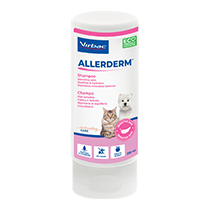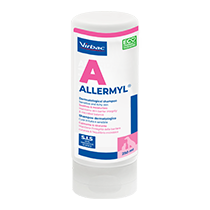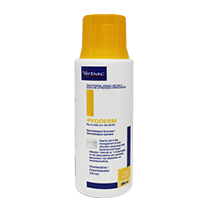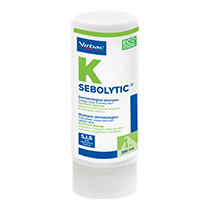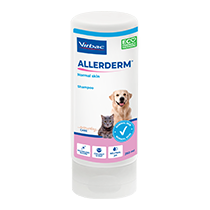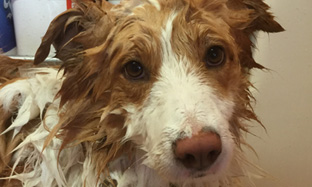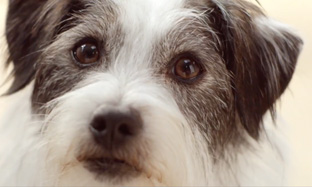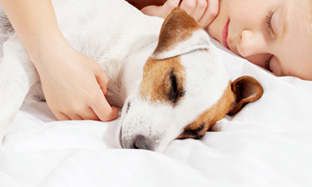
Skin & Ears
Allerderm® Shampoo Sensitive Skin
For dry and sensitive skin. Soothes & moisturises. Helps maintain the natural microbial balance. Allercalm shampoo is designed for the routine hygiene in dogs, cats, puppies and kittens with sensitive and dry skin. It is a gentle, soap-free, natural oatmeal shampoo.
Follow us on social media
THIS PRODUCT IS AVAILABLE FROM YOUR LOCAL VETERINARIAN
FOR ANIMAL USE ONLY
Ask your veterinarian for more information
Virbac, as a pioneer in Veterinary Dermatology, offers a comprehensive range of skin care products tailored to meet the individual needs of pets and to improve their quality of life.
Helps maintain the beauty of the coat:
- Shiny, pleasant odour and tangle-free.
Helps maintain skin vitality with S-I-S technology (Skin Innovation Science™ technology):
- Micro-organism anti-adhesive effects (Glycotechnology)
- Helps maintain skin natural microbial balance (Defensin technology).
DIRECTIONS FOR USE:
Using warm water, wet the coat thoroughly and apply Allerderm.
Massage Allerderm into the wet coat and rinse.
Repeat and allow the second application to remain on the coat for 5 to 10 minutes, then rinse thoroughly with clean water. Use weekly or as advised by your veterinary surgeon.
INGREDIENTS: Aqua, Gentle cleansing agents, Colloidal oatmeal, Glycotechnology (Rhamnose, Galactose, Mannose, Lauryl glucoside), Defensin technology (Peumus boldus leaf extract, Spiraea ulmaria extract).
For use in animals.
Keep out of the reach and sight of children.
Avoid contact with eyes.

